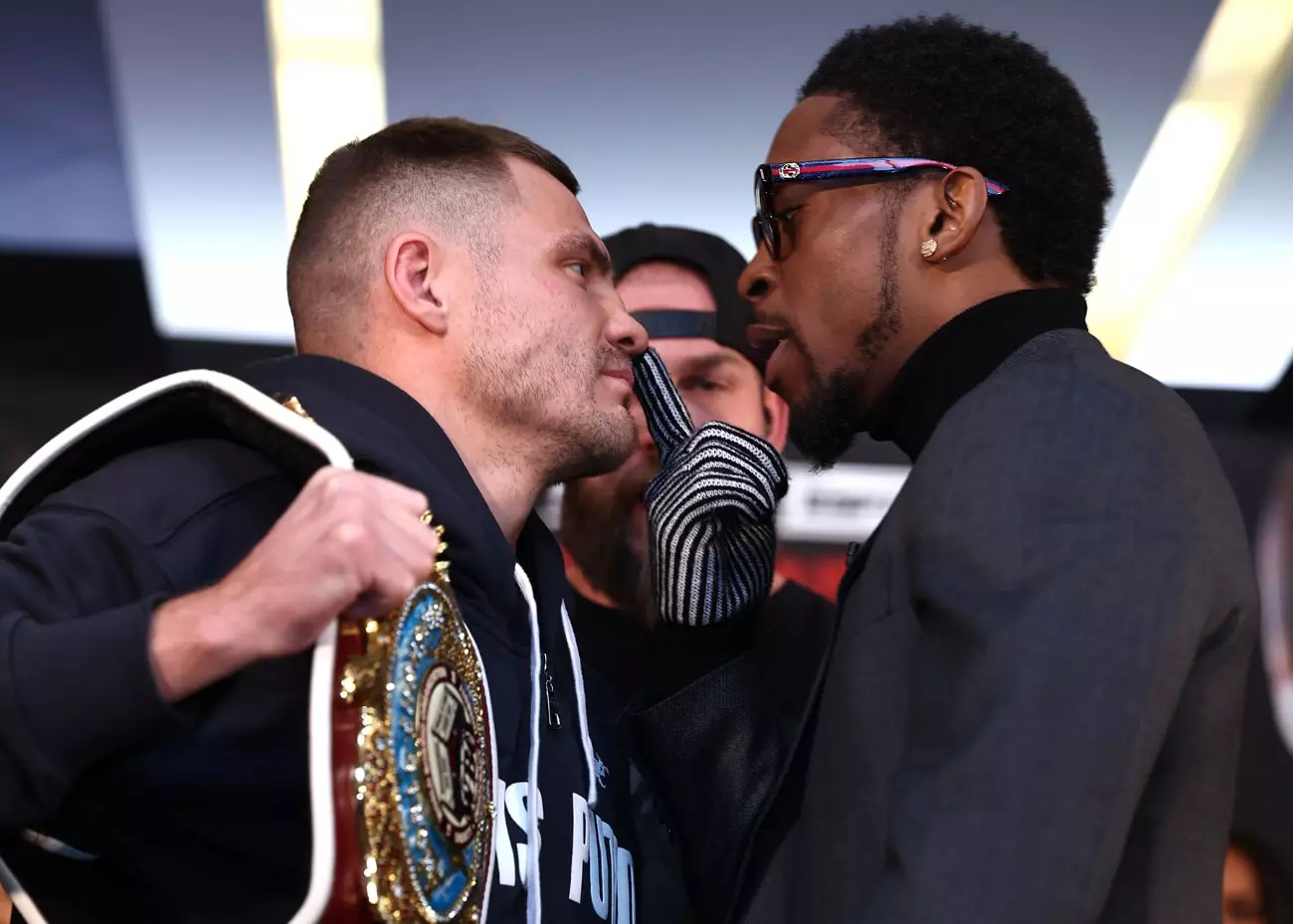As the boxing world gears up for an electrifying showdown this Friday, February 14th, at Madison Square Garden, the atmosphere surrounding the much-anticipated match between WBO lightweight champion Denys Berinchyk and challenger Keyshawn Davis has been anything but ordinary. In the lead-up to the fight, a final press conference took a dramatic turn when Davis made startling accusations against Berinchyk and his manager, Alex Krassyuk. Claiming that a box of bananas and watermelons was sent to his room as a racially charged insult, Davis instigated a heated exchange that left observers questioning the integrity of both fighters.
Allegations of Racism: A Tactical Move?
Davis’s claims of racial provocation, though shocking, raise significant doubts about their validity. Berinchyk, who denied the incidents outright, insinuated that someone might be attempting to generate buzz for the fight by fabricating a scenario that paints him in a negative light. This suspicion could be interpreted as a veiled accusation against Davis himself, suggesting that he is willing to resort to sensationalism for publicity. The harsh glare of the media can often distort perceptions, and Davis’s aggressive behavior did little to allay these concerns, as he repeatedly interrupted Berinchyk’s attempts to clarify the situation.
The tactics employed by Davis, characterized by both confrontation and avoidance of dialogue, revealed a deeper narrative at play. Was he genuinely offended, or was this a calculated move to divert attention away from his preparation for the fight? Given the immediate aftermath of the press conference, many fans are left to ponder whether this dramatic display was a desperate attempt to elevate his profile amidst intense competition in the lightweight division.
The Impacts of a Provocative Image
Davis’s strategy could have long-term consequences for his career. The boxing community often scrutinizes behaviors that verge on the sensational, and if he continues to resort to such tactics, it could overshadow his actual fighting skills. Branding oneself as a provocateur may attract immediate attention, but it also runs the risk of alienating fans and undermining an athlete’s credibility. Furthermore, if Davis faces continued defeat, particularly against challengers like Andy Cruz—who has a record of victory over him—this reputation for conjuring fictitious narratives could backfire spectacularly.
During the press conference, Davis’s confrontational demeanor suggested he was prepared for a physical altercation, adding a palpable tension to the event. The lack of intervention from security during this escalation raises concerns about the management of athletes’ behavior in high-stakes environments. Perhaps the absence of restraint is a signal that the sport may be embracing a more dramatic narrative that mirrors the entertainment industry.
As boxing fans eagerly await the outcome of the Davis vs. Berinchyk fight, the incident prior to the match illustrates the complex interplay between sports, media, and the personalities involved. The ethical considerations surrounding theatrics and sensationalism in combat sports are critical, as they shape not only public perception but also the trajectories of the athletes’ careers. Will Keyshawn Davis emerge victorious in the ring, or will his tactics overshadow his talent? As the fight approaches, one thing is certain: the stakes have never been higher, both in terms of reputation and athletic prowess.

